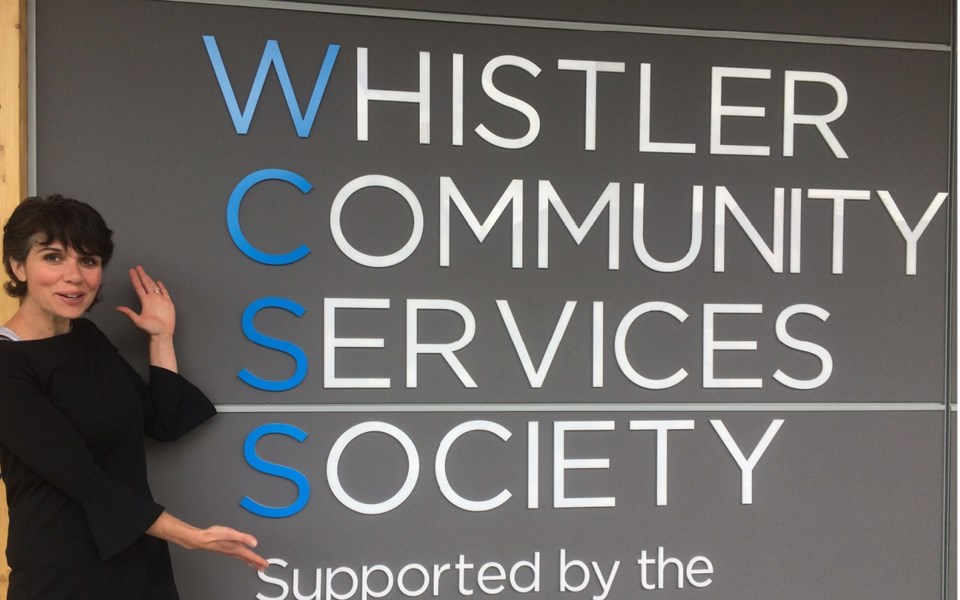Whistlerites now have greater access to naloxone-the life—saving drug that counteracts the effects of an opioid overdose—thanks to the Whistler Community Services Society (WCSS) being named an official naloxone kit distribution site.
The social-service provider had lobbied for official designation as a Toward the Heart take-home naloxone site for the past two years, but "there were questions around whether or not we would distribute enough kits to be an official site," explained Jackie Dickinson, executive director of WCSS.
In the interim, WCSS outreach workers referred clients to the second floor of the Whistler Health Care Centre or a local pharmacy to obtain the kits. But thanks to a surge in interest from resort employers, WCSS recently obtained official designation from the BC Centre for Disease Control as a distribution site, one of 1,643 across the province.
"It was more an ask coming from the community that culminated in this happening," noted Gizem Kaya, outreach worker and program manager for community development at WCSS. Kaya added that, in the past month alone, WCSS has administered training and handed out approximately 100 naloxone kits to staff from The Adventure Group, Whistler Blackcomb and Gibbons Whistler.
There have been roughly 158,000 kits distributed throughout B.C. since the provincial take-home naloxone program was launched in 2012, and approximately 45,000 overdose reversals reported, said Dr. Jane Buxton, medical lead for harm reduction at the BC Centre for Disease Control.
A side effect of having the naloxone kits more readily accessible is that it helps to spark a conversation around drug use in the midst of B.C.'s opiate crisis, added Buxton.
"People start talking about overdose," she said. "It helps that discussion and that can reduce stigma when people think about who may be at risk and who needs to have a kit."
The province set a new record last year with 1,510 overdose deaths, 87 per cent of which involved the powerful synthetic opioid fentanyl and its analogues, up from just 25 per cent in 2012. Those numbers have levelled off somewhat this year, with overdose deaths down 32 per cent through the first three months of 2019.
"It's no cause for celebration," said Buxton of the decrease. "It's still far, far higher than it should be. Opioid overdoses are preventable; they should not happen."
Getting a handle on fentanyl use in Whistler has proved challenging. The BC Coroners Service breaks down overdose deaths by health service region—there were 39 illicit overdose deaths last year in the North Shore-Coast Garibaldi region, which encompasses Whistler. But the provincial agency doesn't typically drill down to community-specific figures when the number of deaths per year falls below 10, primarily due to privacy concerns, a guideline that has drawn criticism from Dr. Mark Lysyshyn, medical health officer for the Sea to Sky.
In March, Whistler RCMP reported that fentanyl was found in drugs seized as part of a drug trafficking investigation, the first time local police confirmed the presence of fentanyl through a forensic analysis.
Although firm numbers are hard to come by, given the prevalence of recreational drug use here—fentanyl and its analogues can be cut into powders or pressed into pills and are often mixed with other drugs—Whistler remains at risk.
"There is a misconception that this opiate crisis is concentrated to the Greater Vancouver Area and the Downtown Eastside. The truth is that people are dying, and primarily in this opiate crisis it's men who are 35 and up who live in rural communities," said Dickinson. "We really felt that a rural community such as ours is at risk and we know our substance use here is high. It's important to talk about."
WCSS has also made a point of raising awareness of the kits through its social media channels as well as diagrams at its main Nesters Road office when clients come in.
"That's essential," Dickinson said. "If people have to ask for it and there are no visual cues to remind them that this place has this service, then what's the point?"
The take-home naloxone kits are available at WCSS's office from 9 a.m. to 4:30 p.m., Monday through Saturday. For individuals interested in picking up a kit, WCSS recommends calling in advance to ensure there is an outreach worker present to administer a 15-minute training session. WCSS is also available to deliver group training to local employers.
Free legal support now available across Sea to Sky
Legal advice is now available for free to financially restricted individuals in the Sea to Sky thanks to the Sea to Sky Community Services Society (SSCS).
The social service provider recently launched its Poverty Law Advocacy program, which offers residents of Whistler, Squamish and Pemberton "assistance at tribunals and hearings in housing matters between tenant and landlords, human rights issues, appealing Assistance Benefits denials, and other legal matters," according to a release.
"Often, people are simply not aware of their legal rights," said Peter Kabengele with the SSCS in the release. "This new program is designed to give free advocacy and assistance to those in the Sea to Sky Corridor who may not otherwise be able to afford this kind of support."
For more information, visit sscs.ca/programs/poverty-law-advocacy.




